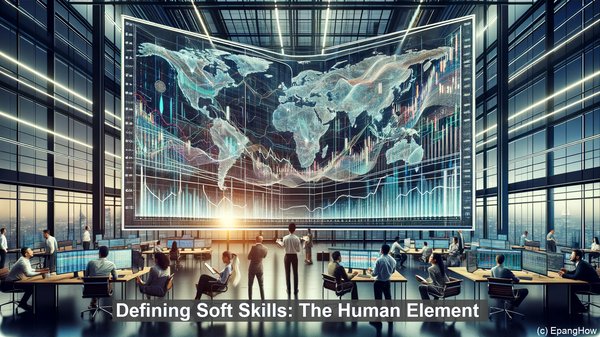Introduction: The Skill Paradigm
Hello everyone! In the dynamic world of work, skills play a pivotal role. However, not all skills are created equal. Today, we’ll explore the contrasting realms of soft skills and hard skills, and how they shape the labor market.

Defining Soft Skills: The Human Element
Soft skills, often referred to as ‘people skills’ or ‘interpersonal skills,’ encompass a range of attributes. These include communication, teamwork, adaptability, problem-solving, and emotional intelligence. Unlike hard skills, which are typically job-specific, soft skills are transferable and applicable across various industries and roles.
The Hard Skills: Technical Proficiency
In contrast, hard skills are specific, measurable abilities acquired through formal education, training, or experience. They are often industry-specific and can be easily quantified. Examples of hard skills include programming languages, data analysis, accounting, and graphic design. These skills are essential for performing specific tasks and are typically listed in job descriptions.
The Labor Market Dynamics
While both soft and hard skills are valuable, their significance in the labor market can vary. Traditionally, hard skills have been highly sought after, especially in technical fields. However, with the evolving nature of work, the demand for soft skills has surged. Employers now recognize the importance of a well-rounded skill set that includes both technical proficiency and strong interpersonal abilities.

The Competitive Edge: The Soft Skill Advantage
In an era where automation and AI are transforming industries, soft skills provide a distinct advantage. These skills, such as critical thinking and creativity, are difficult to replicate through technology. They enable individuals to navigate complex situations, collaborate effectively, and lead teams. Moreover, in client-facing roles, strong soft skills can be the differentiating factor.
The Balancing Act: Striking the Right Mix
The ideal professional profile combines a blend of soft and hard skills. While hard skills showcase technical prowess, soft skills demonstrate the ability to apply that knowledge in real-world scenarios. Employers often look for candidates who possess a strong foundation of hard skills but also exhibit the potential to develop and enhance their soft skills.
